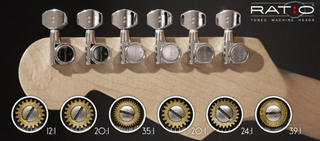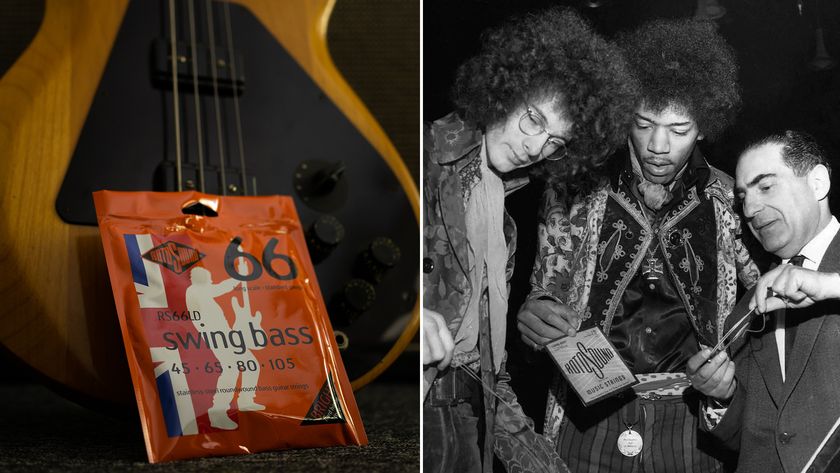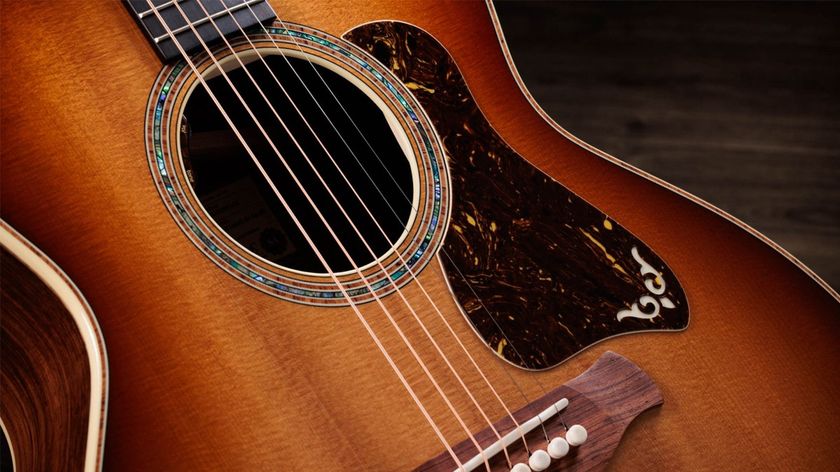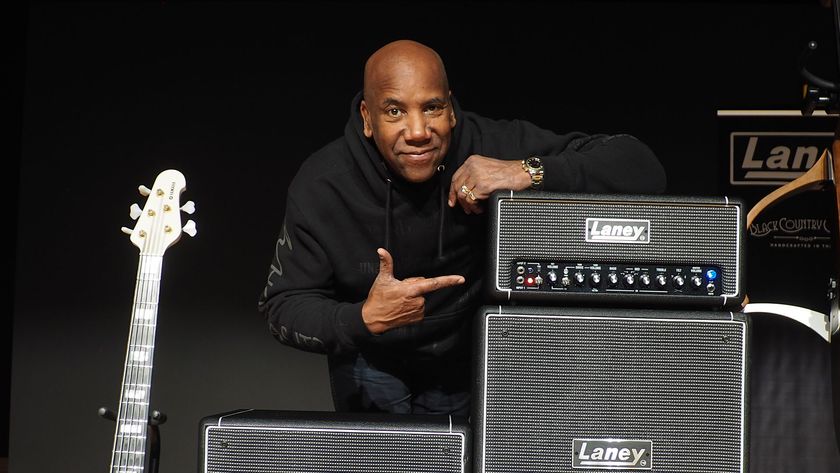Summer NAMM 2013 Videos: Graph Tech Launches Ratio Tuned Machine Heads and TUSQ Picks

Graph Tech Guitar Labs, the world’s largest manufacturer of premium guitar nuts and saddles, is pleased to announce the launch of possibly its greatest product innovation in 30 years. Ratio Tuned Machine Heads.
Twenty-five years ago, Dave Dunwoodie, Graph Tech’s founder and president, had the idea to develop a tremolo bridge that would also retune the guitar to several open tunings. He soon discovered that because each string on a guitar is different, they don’t all tune the same.
For example, thin core strings like the high e and the d string are very insensitive and require more turns to adjust the tuning, while thick core strings like the G and the low E are very sensitive and respond immediately to an adjustment. Dave’s original idea of developing a tremolo "re-tuner" became quite complicated and expensive. “It crossed my mind back then, and I thought that balancing machine head gears to each string would be an awesome way to tune a guitar”. As a fledgling company with little financial resources for R & D, the project went on the back burner but never left Dave’s mind.
Fast forward 25 years. Today Graph Tech, Dunwoodie’s company has grown to become a highly respected and successful music industry guitar component and part manufacturer. With this success Dunwoodie now had the resources to finally design and test his balanced gear technology brain child.
Tuning strings on an instrument hasn't changed too much since strings were invented; wind them around a post and tune them to pitch. The quality of manufacturing of machine heads is also getting so good, that even the low cost tuners are pretty darn good. However, expensive or cheap all machine heads available today share one thing in common; they all use the same gear ratio for each string.
The problem is that when you're tuning the guitar, each string reacts differently to tension. The thicker the core diameter of a string, the more sensitive that string is to tension. In other words, each string reacts differently to the same amount of a turn on the machine head. Dave exclaims “When I ask any guitar player what’s the hardest string to tune? Inevitably, they say the G string because it’s so finicky that you have to sneak up on it or the high E because you have to wind it so much.
Our solution: Ratio -Tuned Machine Heads. With Ratio, we've tuned the gear ratios to each string position, so each string responds the same when you turn the machine head; fine tuning on the thicker core strings and coarser tuning on the thinner core; anywhere from 12:1 to 39:1 gear ratio. One turn is about one tone change on all strings, making the tuning, retuning and open tunings easier, quicker and more intuitive.
Get The Pick Newsletter
All the latest guitar news, interviews, lessons, reviews, deals and more, direct to your inbox!
Ratio tuning feels natural. You don't have to think about which string you are tuning because they all feel and respond the same. No more overshooting the Low E or G. no more twisting away on the High E or D string. Open tunings have never been easier. String gauges such as light top, heavy bottom are no problem with Ratio; they still do the same precision tuning.
Ratio machine heads fit most major acoustic and electric models in both a 3 + 3 and 6-in-line headstock configurations. Players can choose from popular button styles: Standard, contemporary, vintage or contemporary mini - all with durable triple-plated finishes including chrome, gold, black or nickel. Unlike other machine heads, Ratio fine gears are made from hardened steel to precision tune for years and years. Ratios cost about the same as most quality machine heads. $99-109.99.
For more about Ratio tuners, head here. For more about TUSQ picks, head here.







Since 1980, Guitar World has been the ultimate resource for guitarists. Whether you want to learn the techniques employed by your guitar heroes, read about their latest projects or simply need to know which guitar is the right one to buy, Guitar World is the place to look.

“A distinctive brightness that no other strings have been able to capture”: How Rotosound revolutionized the bass world with its Swing Bass 66 strings – and shaped the sound of rock music in the process

“An investment-grade, pro-quality guitar that will provide decades of playing enjoyment before it becomes a treasured family heirloom”: Taylor Gold Label 814e SB review








